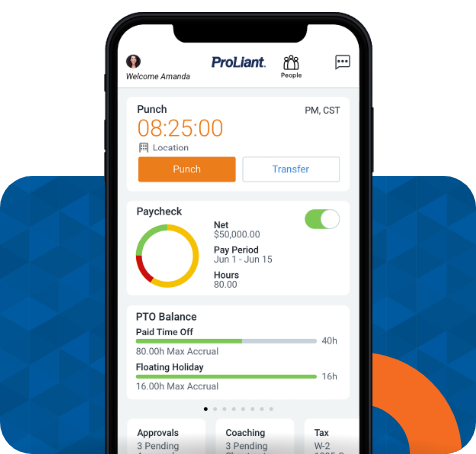With the passing of President Trump’s “One, Big, Beautiful Bill” the elimination of federal income taxes on tips and overtime pay has stirred conversation among businesses across various industries. With the goal of increasing net earnings for workers, particularly those in service and hourly wage positions, the bill also presents substantial implications for employers.
As we brace for changes that could impact a staggering 13 million hourly workers in hospitality and other various industries, it’s more important than ever for businesses to stay ahead of the curve.
Let’s take a deeper look at this bill and what preparations you need to make.
What the Policy Means
The “No Tax on Tips and Overtime” initiative suggests that employee earnings from gratuities and any premium pay from overtime hours would no longer be subject to federal income tax. These policies should generally increase take-home pay for those employees when they are filing their personal tax returns as both provisions allow for a deduction to be taken on an employee’s personal U.S. Federal Income Tax Form 1040 at the end of the year.
What Does This Mean For Tips Earned?
The "No Tax on Tips" provision allows employees who work in traditionally tip-receiving jobs to take an above-the-line deduction for qualified tips on their personal tax return. This deduction applies to W-2 employees, independent contractors with 1099-K or 1099-NEC forms, and those reporting tips on Form 4137.
Deductions are available regardless of whether an individual chooses to itemize deductions or utilize the standard deduction. Individuals would deduct qualified tips on their personal federal income tax returns, resulting in qualified tipped income being exempt from federal income tax.
Here are some key highlights:
- Deduction is capped at $25,000 per year
- Deductions would phase out beginning when an individual’s modified adjusted --gross income exceeds $150,000 for the year (or $300,000, for married filing jointly).
- As this is an above-the-line deduction, employees don’t need to elect itemized deductions to get the benefit.
- Social Security and Medicare taxes still apply.
- Employees must have a social security number to be eligible. Those with a tax ID are not eligible.
- Employer reporting requirements are expected to change slightly with consideration to the Form W-2. This is pending additional guidance from the IRS. The law also codifies a requirement for the Form W-2.
- The deduction applies to all tip income received, including tip sharing/pooling arrangements, although unclear whether tip income received by back-of-the-house workers are eligible.
- Only “voluntary” tips seem to apply. Service charges or any automatic gratuities applied to larger groups or catered events would not be eligible for the deduction.
- The deduction only applies to tips reported as income.
Additionally, not all taxes on tips are going away. The new provision only reduces federal income tax on tipped income. For example, workers and employers are still required to pay payroll taxes that go to Social Security and Medicare. In addition, state and local tax jurisdictions have yet to announce if they will follow this provision for state and local income tax purposes.
What Does This Mean for Overtime?
The “No Tax on Overtime” provision allows employees to deduct the overtime premium portion (i.e. the “half” of “time and a half”) from their federal income taxes. This means employees no longer are required to pay federal income tax on the premium pay from overtime, while still being taxed on their regular earnings.
Previously, all overtime wages were included in gross income. While there were recordkeeping requirements for overtime wages, there previously has been no separate reporting requirement for tax purposes on earned overtime wages. In prior years, certain states, like Alabama, have enacted temporary legislation to forgo taxing the premium portion of overtime pay for state income tax purposes, but nothing like this has even been done at the federal level. Under the new law, new reporting requirements for overtime wages will be included on the Form W-2. These new reporting requirements are still pending and due to be published later this year by the Internal Revenue Service.
Here are some key highlights:
- Individuals would be entitled to a deduction on the premium portion of overtime earnings on their personal federal income tax returns, resulting in overtime income being exempt from federal income tax.
- Deduction is capped at $25,000 per year for joint returns; $12,500 for individual filers.
- The deduction excludes highly compensated employees, as defined in IRC §541.601, as these employees are already not subject to overtime pay.
- Deductions would phase out beginning when an individual’s modified adjusted gross income exceeds $150,000 for the year (or $300,000, for married filing jointly).
- Qualified tipped income (that is eligible for the new federal deduction) that is included in the overtime premium amount would not be eligible for an additional deduction for overtime premiums.
One uncertain aspect of the provision is its implementation in relation to state and federal laws. Federal laws state that employees are entitled to overtime pay when they work more than 40 hours in a week. However, some states have their own regulations that consider an eight-hour workday, meaning that overtime pay can be required even if the employee has not exceeded 40 hours in a week. This discrepancy can lead to different taxation for overtime pay at the state and federal levels, making it challenging for both workers and employers to understand and manage. It is vital that employers be aware how state and local tax jurisdictions adjust to these new federal tax policies.
Five Steps To Prepare For New Provisions
The bill was signed into law by President Trump on July 4, 2025. The provision eliminating taxes on tips will apply to taxable years starting after December 31, 2024, while the removal of taxes on overtime premiums is currently in effect. Both tax deductions will be available for four years, from 2025 to 2028 and are retroactive to January 1, 2025.
It is crucial for businesses to be prepared now, so here’s a few tips to help you get ahead of these new provisions.
Payroll System Adjustments
Employers will need to work with their payroll providers to ensure their system is able to distinguish between the various types of taxable and non-taxable income at a federal, state, and local level. Currently, tips and overtime premiums are both taxed as regular income. Under the new policy, payroll software must be able to:
- Separate tax-exempt tips and overtime premiums from regular taxable wages
- Notate which types of tips (and which types of employees) are eligible for the tax deduction and which types of earnings (and employment positions) are not
- Properly calculate federal withholding without including these exempt amounts
- Report exempt income accurately on pay stubs and year-end W-2s
Changes to Tax Withholding Calculations
Payroll departments and payroll systems must be adept at adjusting federal income tax withholding calculations because exempt income like tips and overtime will not count as gross taxable wages. Some employees may ask about altering their federal income tax withholdings now to take advantage of these benefits and not want to wait to receive the benefit when they file their federal income tax return at the end of the year. This may:
- Reduce the amount withheld from employee paychecks
- Require updated withholding tables or formulas
- Impact employees’ estimated tax payments if they have other income sources
Payroll and HR departments should be knowledgeable and up to date on recent legislation changes to properly answer any questions from employees who are considering changing their withholding tax elections.
Compliance and Audit Risk
The new policies are designed to boost worker take-home earnings—but for employers, it introduces a new layer of complex rules and regulations. As with any major tax policy change, companies must adapt to evolving rules and ensure proper recordkeeping, reporting, and regulatory alignment. These include:
- Separately tracking and reporting tax-exempt income. Ensure time keeping and point of sale data accurately depicts the type of earnings received by employees.
- Preparing for new IRS audits and Department of Labor (DOL) Reviews
- Ensuring multi-state and local jurisdictional compliance for businesses operating in multiple states with varying tax codes
Impact on Benefit Eligibility & Contributions
Taxable income plays a significant role in determining eligibility and calculations for various areas, including:
- Contributions to retirement plans (e.g., 401(k))
- Deductions for health insurance premiums
- Contributions to Social Security and Medicare
If certain tip income and overtime premium pay are excluded from taxable income, businesses may need to re-evaluate benefit thresholds and adjust employee contributions. This could potentially impact compliance with benefit regulations such as ERISA and the Affordable Care Act.
ProLiant Is Here To Help
We know that these new provisions bring about some big changes that can really shake things up for businesses, especially when it comes to payroll, compliance, and everyday operations. Change can feel a bit overwhelming, and we totally get that.
Adapting to new laws takes time, resources, and a lot of patience. Just remember, you don’t have to take this on alone. ProLiant has been at the forefront of payroll and HR compliance changes for the past 30 years. With innovations such as our award winning Affordable Care Act compliance module and our newly released Tip Management tool, ProLiant has been an industry leader in the payroll and HR compliance space you can count on.
Simply request a meeting and one of ProLiant’s representatives would be happy to help you prepare for these new provisions.
To learn more about the bill and additional provisions, please click here.







No Comments Yet
Let us know what you think